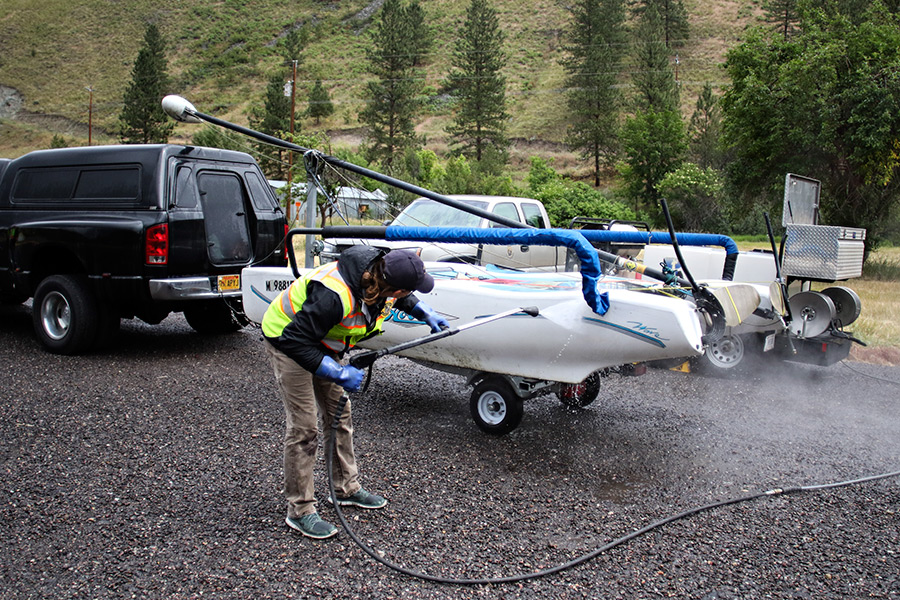The Confederated Salish and Kootenai Tribal Council on Thursday issued a watercraft and trailer closure affecting all Flathead Reservation waters in response to the recent detection of invasive mussel populations in Montana.
Effective immediately, all watercraft must be inspected and cleared for launching into any Flathead Reservation water body by a certified boat inspector. All watercraft, trailers, and water-based personal equipment must be completely clean, drained and dry on all interior and exterior surfaces before launching into Flathead Reservation waters.
The following watercraft type restrictions will be added to the Flathead Reservation’s existing boating regulations for all Tribal water bodies with the exception of Flathead Lake and the Lower Flathead River: Only hand-propelled, non-trailered watercraft including kayaks, canoes, rafts and paddleboards will be permitted for use.
The declaration comes in response to the recent discovery of mussel larvae in Tiber and Canyon Ferry reservoirs east of the Continental Divide, as well as in the Milk River near Malta and the Missouri River near York’s Islands Fishing Access Site south of Townsend.
So far, the traces of contamination are restricted to the Missouri River Basin, but the potential for mussels to spread by clinging to the hulls of boats or persisting in the bilge water has risen dramatically.
Felt-soled waders are prohibited from use in any Flathead Reservation water body. Recreationists and waterfowl hunters must dry dogs to prevent movement of mussel larvae in wet fur entering lakes and rivers.
The measures are being implemented in accordance with the Confederated Salish and Kootenai Tribes Aquatic Invasive Species Technical Teams recommendation. The closure includes all privately owned motorized and trailered watercraft.
“Tribal scientists and managers are working with the state of Montana and other water quality experts to understand the potential impacts from this threat, and identify steps the Tribes will take to further protect the waters of the Flathead Reservation,” said Tom McDonald with CSKT’s division of Fish, Wildlife, Recreation and Conservation.
After learning of the positive detections, the CSKT water quality program immediately partnered with the scientists at Flathead Lake Biological Station to assess the waters of Flathead Lake. A total of 130 samples were collected from 30 locations around the perimeter of the lake as well as in open water locations.
Last month, the researchers announced that the samples had come back negative for invasive mussels.
According to Brandon Couture, an investigator for the CSKT Conservation Officers, patrols will enforce the closures effective immediately.
Violators may be cited for criminal trespass and removed from the area.
Penalties may include confiscation of watercraft and suspension and/or revocation of fishing, hunting and recreation licenses along with monetary fines.
